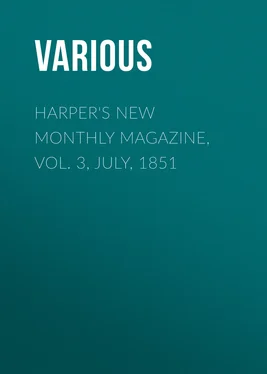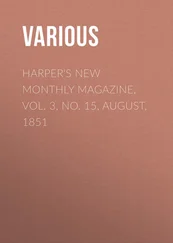At that time a son of Mr. Lee was at school at St. Bees, in England. One day, as he was standing near one of the professors of the academy, who was conversing with a gentleman of the neighboring country, he heard the question asked, "What boy is this?" To which the professor replied, "He is the son of Richard Henry Lee, of America." The gentleman, upon hearing this, put his hand upon the boy's head, and remarked, "We shall yet see your father's head upon Tower Hill." The boy promptly answered, "You may have it when you can get it." That boy was the late Ludwell Lee, Esq., of Virginia.
The history of this bell, now hanging in the steeple of the State House, in Philadelphia, is interesting. In 1753, a bell for that edifice was imported from England. On the first trial ringing, after its arrival, it was cracked. It was recast by Pass and Stow, of Philadelphia, in 1753, under the direction of Isaac Norris, the then Speaker of the Colonial Assembly. Upon fillets around its crown, cast there twenty-three years before the Continental Congress adopted the Declaration of Independence, are the words of Holy Writ, "Proclaim liberty throughout all the land unto all the inhabitants thereof." How prophetic! Beneath that very bell the representatives of the thirteen colonies "proclaimed liberty throughout all the land," and its iron tongue echoed the annunciation! For more than two hours its glorious melody floated clear and musical as the voice of an angel above the discordant chorus of booming cannon, rolling drums, and the mingled acclamations of an excited multitude. It, too, was fractured, and for long years its voice has been silent. When I stood in the belfry and sketched this portrait of the old herald, the spirit of the Past, with all its retinue, seemed to be there, for association summoned to the audience chamber of imagination, from the lofty hills and green valleys of the Republic, that band of patriots who stood sponsors at its baptism in 1776.
This is in allusion to the line which Turgot wrote under the bust of Franklin: Eripuit cælo fulmen, sceptrumque tyrannis .
None such are in fact required, for the car itself contains air enough for the use of its passengers for a quarter of an hour, and there is rarely occupied more than a period of two or three minutes to pass it through the surf to the shore.
Areas being as the squares of homologous lines, the ratio would be, mathematically expressed, 1²: 4 × 12² = 1: 4 × 144 = 1: 576.
There are nine of these presses in the printing-rooms of Harper and Brothers, all constantly employed in smoothing sheets of paper after the printing. The sheets of paper to be pressed are placed between sheets of very smooth and thin, but hard pasteboard, until a pile is made several feet high, and containing sometimes two thousand sheets of paper, and then the hydraulic pressure is applied. These presses cost, each, from twelve to fifteen hundred dollars.
The principle on which these life-boats are made is found equally advantageous in its application to boats intended for other purposes. For a gentleman's pleasure-grounds, for example, how great the convenience of having a boat which is always stanch and tight—which no exposure to the sun can make leaky, which no wet can rot, and no neglect impair. And so in all other cases where boats are required for situations or used where they will be exposed to hard usage of any kind, whether from natural causes or the neglect or inattention of those in charge of them, this material seems far superior to any other.
Continued from the June Number.
Continued from the June Number.












